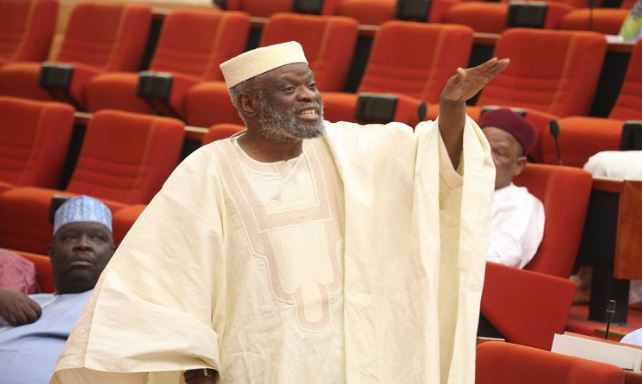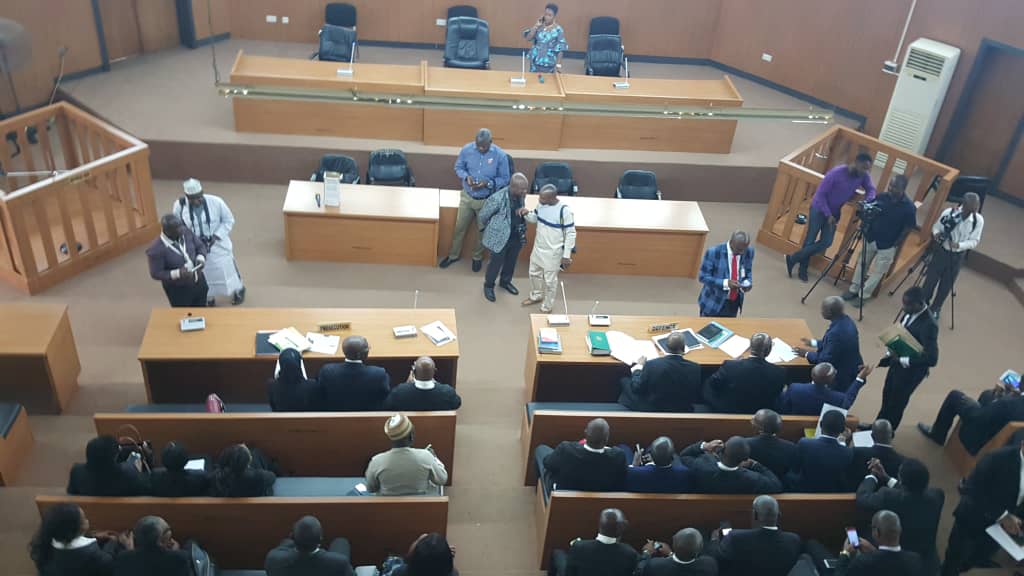Anambra, the mercurial pearl of Igbo nation nestling River Niger, is in the news again.
We are not about to revisit the ferment of executive intemperance that led the sitting governor into allegedly calling the whole leader of the pan-Igbo organization, Ohanaeze, “an idiot” for endorsing the presidential candidate of the main opposition party ahead of the just-concluded general elections.
Rather, we are confronted by the audacity of a new piece of legislation by the Anambra State Assembly seeking to smash through cultural barriers into some dark necromantic alley. Unambiguously named “A Law To Control Burial/Funeral Ceremonial Activities” and passed by a majority of the legislature, the act expressly seeks to abolish ostentation and impose a new culture of modesty. All thanks to its sponsor, the iconoclastic Charles Ezeani (representing Anaocha II constituency), who says it “is aimed at cutting down the cost of burial activities in the state”.
Should Governor Willy Obiano assent with his golden fountain pen, it then becomes a grave felony “to deposit any corpse in the mortuary or any place beyond two months from the date of the death, while burial ceremonies in the state shall be for one day.”
Advertisement
No person, it further forewarns grimly, shall subject any relation of the deceased person to a mourning period of more than one week from the date of the burial ceremony.
To confer the sobriety thought appropriate in the circumstance, the law also forbids traditional gunshot salute, praise-singing, blocking of roads/streets during obsequies or assumed ritual destruction of property.
In what could only be targeted at relieving the bereaved of financial burden or unreasonable expectations, another clause states specifically that the family of the deceased “shall provide food for their kindred, relatives and other sympathizers at their own discretion.”
Advertisement
Taken together, these proposals are, to say the least, quite earth-shaking indeed. Before arriving at this historic juncture, the report however did not state how much of public buy-in had been secured through the agency of public hearing facilitated by the state assembly over a potentially explosive proposition.
While Ezeani’s motive could hardly be faulted in nobility and public-spiritedness, however, considering that key provisions are framed by a thinking that tends to suggest extremism of sorts, one is persuaded to assume that not much consultation took place with the stakeholders. It is very doubtful if the vested interests in the obituary value chain would have just sat by and allowed an arrangement that seeks to dim their lights or simply take bread away from their tables without raising a voice of dissent.
By that single law, a whole universe of professionals will undoubtedly be facing existential threat, if not extinction already. A more austere burial means bearish market for mortuaries and the morticians, for instance. So, how are caterers, “Aso Ebi” (fabric) merchants, event planners, vintners, lessor of marquee/canopy/plastic chairs expected to survive now?
What then happens to the familiar hawkers of white handkerchiefs or hand fans? To say nothing about traffickers of mint-fresh banknotes for “spraying”. Or those who thought they had struck gold by stocking milllion units of the rave-of-the-moment – the pistol-like cash-spraying machine fabricated in – where else? – China.
Advertisement
We have not even considered “professional mourners” on hire to wail louder than the bereaved when the latter become too tired or had lost their voices to too much sorrow.
Moreover, big or elaborate funerals also create brisk business for the masters of the two contrasting realms – the cosmic and the secular: rainmakers and alchemists who solemnly prime the canon for traditional gun-salute on the one hand; and native drummers who fall over each other in the driveway to usher you into the party venues with soliciting crescendo.
Well, we were also not told whether Ezeani had contemplated a ceiling to the cost of a coffin permissible in Anambra soil henceforth. That may, in fact, drag us into a corpus of morbid details like the apocryphal tale of a thrifty coffin-maker who, upon being pressed for a concession, promised the customer a discount the next time. Or the theatrics of the hyperactive curator of the communal hearse, gleaming from meticulous preservation probably by generations, its utility yet creatively extended by the current custodian to double as family car to church service on Sundays.
And lo, the king of them all – the musician who makes a fortune from performing at the big parties which the new Anambra law seeks to outlaw. At a time piracy has virtually made album sale unprofitable, who does not know that most artistes now hustle for live performances for subsistence, aside endorsement deals with rich corporate bodies. Of course, praise-singing is the short-cut.
Advertisement
As an editor some fifteen years ago, I remember being approached by one of our star reporters (Emeka Eyinnaya) saying a famous Igbo musician was aghast at the headline given his interview we had published the previous week.
While responding to a specific question, the iconic entertainer had stated rather casually that he was not in a position to know whether the provenance of money sprayed on him by those he usually eulogized at soirées was tainted or not.
Advertisement
I cast the said headline to reflect such self-acquittal from possible complicity on account of a murky source.
Apparently, a good number of his big spenders – most probably bigtime conmen or money ritualists – had rang him up to express bitterness at his impudence to speak so uncomplimentarily of the hands feeding him.
Advertisement
But note, the respondent didn’t disown or dispute any portion of the transcript which could have been cited as basis to fault the “offending” title, but was simply unhappy that the interview he was reluctant to grant in the first place was now going to pour sand in his garri.
Such is the sensitivity that sometimes underlines the rendition of eulogy at social parties and the tightrope musicians have to walk thereafter to remain in business.
Advertisement
But while all the foregoing merely pertains to the consequences, the new Anambra funeral act would also appear to be in cold contempt of something more substantial – cultural sensibilities or habits. While it is much easier to fix damage at the material level, altering things at the cultural realm is never an easy task. Those already thinking the proposed law will suddenly usher the desired change in social behavior in that jurisdiction will, therefore, need some reality check by simply recalling the anti-spraying law similarly pushed by the Obasanjo administration in 2007.
Despite that section 21 subsection 1-4 of the CBN bill passed by the sixth National Assembly prescribes heavy penalties beginning with arrest and a prison term of six months or N50,000 fine, Nigerians have not stopped spraying crisp Naira notes at social parties.
Let us face it: the Igbo in Anambra are certainly not alone in turning burial to carnival of sorts. In most African societies, loud funerals are not only deemed fitting finale to an illustrious life but also considered one last debt owed the dead.
Therefore, the common prayer among folks is not just the grace to die not faraway from one’s wardrobe only but also in the arms of one’s offspring who should be in material position to meet often high expectations of the community.
So, whereas the bereaved in, say, western societies might consider as parting gift memorializing the departed by instituting a foundation to propagate the idea they cherished while alive, the average African would rather preserve the memory of their dead by hosting a shindig to be remembered as the grandest in a generation.
In Yorubaland, such jollification falls under the rubric of “Owambe”. In Edo, it is called “Obito”.
It is, therefore, doubtful if this age-old lifestyle can be legislated out of existence overnight like the Anambra’s funeral act envisages. The “Owambe” industry in Lagos is reportedly worth a whopping N26b, for instance. While the culture of ostentation must be seen as constituting ready normative offence, one would rather suggest the adoption of a civic engagement approach to wean the society off such hang-over. The underling mindset speaks to what psychologists call the edifice complex. It partly explains the obsession for bogus things – big cars, big houses, long convoys.
We also see this showoffishness manifesting in the knack for titles that make many insist that their names be prefixed with “Sir, Chief, Dr, Engineer…”
There is an urgent need for a re-orientation of the society to begin to see the nobility in simplicity. The crusade is not for government alone but also the traditional and religious institutions as well. Meanwhile, rather than prohibit loud parties, what stops the authorities from imposing punitive taxes on those who choose to exceed the threshold considered modest?
Sowore’s affirmative gesture
Given the popular notion that lack of accountability is one of the chief ills of our politics, how amazing that an affirmative gesture a fortnight ago by the presidential candidate of the African Action Congress (AAC), Omoyele Sowore, went almost unnoticed.
Without any prompting, AAC released a statement of account of its campaign spanning a year. We are told the party was able to raise a total of N157 million through a GoFundMe vehicle opened with Zenith Bank.
It covered assorted costs ranging from travel, accommodation, renting town halls, refreshments, mobilizing attendees to “N740,000 spent on security and intelligence”.
With this, Sowore, publisher of Sahara Reporters (the hard-hitting citizen-journalism platform), has undoubtedly set a record in campaign financing in Nigeria and demonstrated a responsibility and accountability rare among recipients of public donations towards a civic cause.
Well, it surely will be a tall order asking the older, more established parties to render similar account or open their books for public scrutiny. More like the futility of looking for a virgin in a maternity ward. Interestingly, Sowore, a one-time student union president at University of Lagos, would seem the biggest revelation of the 2019 general polls, coming sixth ahead of a few big names in the contest involving 73 candidates.
It is quite instructive that AAC’s GoFundMe account swelled from the widow’s mite sent by tens of thousands of Nigerians sold on Sowore’s advocacy of a new Nigeria. There couldn’t be a better way to show fidelity to those who sowed in faith and who, potentially, could become the foundation of Sowore’s captive audience for future aspirations.
While Sowore has given an account, not a few other parties are still embroiled in bitter fight over money. We hear of party executives bickering with their standard-bearers either over not making full disclosure of cash donations or spending without transparency.
It is as if some did not see a border between their personal pockets and the party’s pouch.
The puzzle then: if such folks cannot account for little purse of a small party, how are we to trust them with the nation’s treasury?
Views expressed by contributors are strictly personal and not of TheCable.
Add a comment







